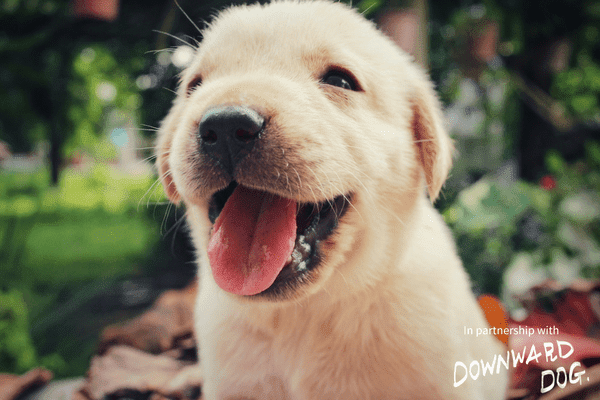
It's no joke: Some people really do love their dogs just as much as their children.
You've seen the parents that spend just as much on their dog's Halloween costumes as they do their kids' costumes. The parents who only provide their dog with the best toys, best food, best training and best grooming possible because those are just as valuable as paying for their daughter's year at a charter school. Or the parents who won't take a family photo unless their dog is in it because he or she is just as much a member of the family as any child.
Maybe you are one of those parents, and there is no shame in that. In fact, science backs you up. You're not crazy, just very in touch with some of your hormones.
A hormone for unconditional love
The kind of love you feel for your children is unconditional. Sure, you want them to make the best decisions, but you know you will love them no matter what they decide. This sometimes makes you a little protective of your children, turning you into the mama bear you didn't know you could be. Your children don't have to qualify for that unyielding kind of love. From the moment you first laid eyes on your children, you simply loved them.
That strong feeling of love and protection you get is triggered by a hormone called oxytocin. Sometimes referred to as the "love hormone,"oxytocin is what engenders strong levels of trust and empathy for another person. This hormone is what produces that unbreakable mother-to-infant bond and is a necessary hormone for labor and breast-feeding. It also is released during sex and causes a high level of emotional connection between two partners.
Oxytocin rises in our bodies when we touch or embrace a loved one or look into their eyes. And yes, this includes when we see or embrace our dogs, too.
The feeling is mutual
Not only do we feel a surge of oxytocin when we look into our dog's eyes, but they also experience a similar increase in oxytocin.
One study from Duke University and the University of Tokyo found that in this way domestic dogs have evolved into becoming "man's best friend." When placed in a room with their owners, dogs and humans both had increased levels of oxytocin in correlation with increased eye contact between the two.
The same experiment was performed with wolves raised by humans and their owners. However, no such increase in oxytocin could be found in the wolves. The researchers concluded that dogs, in the 34,000 years of their domestication, have picked up on their owners' social cues similar to how young children do, forming a comparable parent-to-child bond.
Face-to-face contact
With children, spouses or other loved ones, there are many ways to spike our oxytocin through our different senses. But with our dogs, the communication barrier limits this more to eye-to-eye and face-to-face contact.
Another study gave mothers pictures of children and dogs to look at, some of their kids and pets, and some that were completely unfamiliar. Measuring the mothers' emotions and brain activity, the researchers found that these mothers felt a surge of emotion and social cognition toward the familiar faces, but not toward the unrelated photographs.
They also found that, "An area of the brain vital to processing faces was activated more by a dog picture than a child's face." This could be because humans recognize their dogs more by sight than by sound or touch. Human-to-dog communication is more centered around facial cues than a verbal language, although dogs do pick up on sounds and tones of voice.
A recent show on ABC, "Downward Dog," plays off of this communication barrier between humans and their dogs. The hilarious and sometimes cynical narrator, Martin, is a dog living with his owner Nan, chronicling her life as he sees it. The love he feels for Nan and the love she feels for him is undoubtable, but sometimes they both feel a little misunderstood. It's a clever and insightful take on how we create connections in a modern relationship. Because after all, the relationship we have with our dogs is just as powerful as any other close relationship we make.
If you feel the same unconditional love for your dog as you do your children, you're not alone. That motherly bond isn't going to go away, but luckily for you, the bond your dog feels for you isn't fading either.
Catch up on ABC's "Downward Dog" and get a new perspective on what your dog is really trying to say to you. Don't miss Nan and her dog Martin in the special one hour finale next Tuesday at 10/9c and be sure to catch up on episodes now at ABC.com and ABC On Demand.

